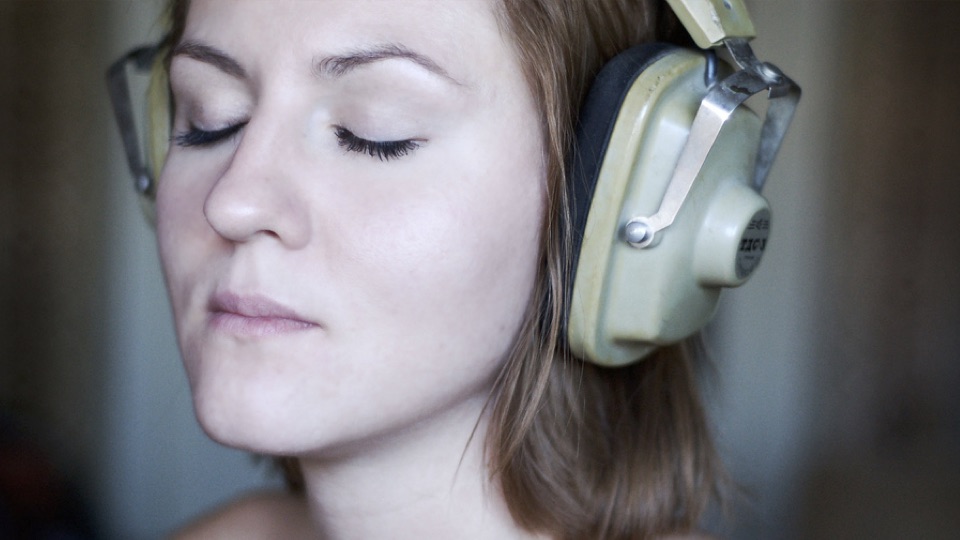For many, listening to music can be therapeutic. That’s because it is, and there’s science to back it. In fact, music therapy is on the rise, and for good reason. Music therapists are improving lives from all walks of life – military veterans, those in hospice, individuals with physical and mental disabilities, and even survivors of abuse and trauma. This growing therapy practice is making big changes for those facing emotional, mental, and physical challenges, as music therapy sessions can lessen stress levels, reduce muscle tension, and even lower blood pressure and heart rate. Whether you listen to music to go to sleep at night or get your day started, we can all benefit from the science behind music in order to lead a more healthy and purposeful life.
What Is Music Therapy?
Music therapy provides individuals with the means to express their emotions through music, as well as engage with others. A typical music therapy session with a licensed music therapist can combine many elements of music interaction – from writing and creating a song, to listening to calming music, to playing an easily accessible instrument, such as a drum. All of these activities provide an alternative way of expressing emotions that might be difficult to share verbally. Participating in music therapy can give individuals a new form of self-expression for the experiences and feelings we face that might be more challenging to put into words.
Related: “The Mental Health Benefits of an Aquarium”
A music therapist also goes through rigorous training and education in order to be able to practice, just like a social worker or licensed therapist would. Currently, only 120 universities in the U.S. offer undergraduate and graduate degrees in music therapy. However, the field is rising in popularity with the trend of alternative medicine and therapy becoming more popular on a global scale. Generally, a music therapist is required to obtain at least a Bachelor’s degree in the field, along with completing 1,200 clinical hours working in a music therapy setting. In addition, sitting for a national board exam to earn the MT-BC (Music Therapist – Board Certified) credential is required after completing a Bachelor’s or Master’s degree. While obtaining a degree in music therapy is a common course of study, those who hold a psychology or general music degree can also become music therapists.
The Benefits Of Music Therapy
We all know that listening to music has proven psychological benefits, but what do these benefits look like from a music therapy perspective? For starters, music therapists work with a wide variety of populations, ranging from war veterans to the elderly, and even trauma survivors. Participating in a music therapy session can provide a sense of calm, self-expression, and relief from stress or anxiety, as well as physical health benefits like lowered blood pressure and heart rate.
For those who battle insomnia or a sleep disorder, music-assisted relaxation therapy can aid individuals in both falling and staying asleep. This is a practice that can be done both with a music therapist and individually, and is a more cost-effective and individualized method of treatment than medication. Listening to the same genre of music nightly has been proven to create a routine that promotes a “pre-sleep state” which helps promote relaxation and better sleep overall. Studies have also shown that music-assisted relaxation therapy helps hospital patients heal and rest more thoughtfully after a surgery or other injury. This kind of therapy has been proven effective in pain management, coping with injury or illness-related stress, and improving communication skills.
For those struggling with depression and anxiety, music therapy can play an impactful role in improving mood and calming the mind and body. Actively listening to and playing music is shown to increase the release of endorphins in the brain – the hormone that’s tied to making us feel happy. It can also spark creativity, and provide distraction from anxious thoughts and feelings.
Since the beginning of time, music has been used as a means of bringing people together. For elderly adults, being part of a music therapy group session can bring a sense of community and belonging, connecting them with others in a therapeutic social setting. For children and adolescents, a group session can promote socialization and a means to communicate through musical expression. For all age groups, music therapy can reduce stress levels and provide a sense of belonging to a greater community.
Music therapists have also been doing stellar work with populations struggling with physical, mental, and emotional disabilities. In a report from UNC Health earlier this year, music therapy plays an impactful role in helping those with Parkinson’s Disease reconnect with their body and mind, and cope with their illness. Their music therapy work with Parkinson’s patients has shown improvement in quality of life, muscle movement, and has even proven to slow the progression of the disease.
“Music therapy is using music to reach non-musical goals,” explained Rachel Shell, music therapist at First Health. “And in here, with Parkinson’s, it’s working toward movement, speech or coordination or working through some of that rigidity.”
Surprisingly, one of the songs that Shell plays for her patients in a group music therapy session is “Roxanne” by The Police. While it might seem like a strange pick at first, the song actually has components that help patients in a variety of areas. In the song, the name “Roxanne” is sung a total of 23 times. Every time they sing “Roxanne,” patients are instructed from a sitting position to lift their legs, encouraging socialization, targeted body exercise, and a sense of community amongst one another.
Shell also shared that her main goal is to bring positivity through music into the lives of her patients.
“My philosophy is, at the end of the day, I hope that people are having fun and enjoying the music,” Shell shared.
-April Hanna
Photo: Kashirin Nickola via Wikimedia Commons



0 comments on “How Music Therapists Are Mending Minds”